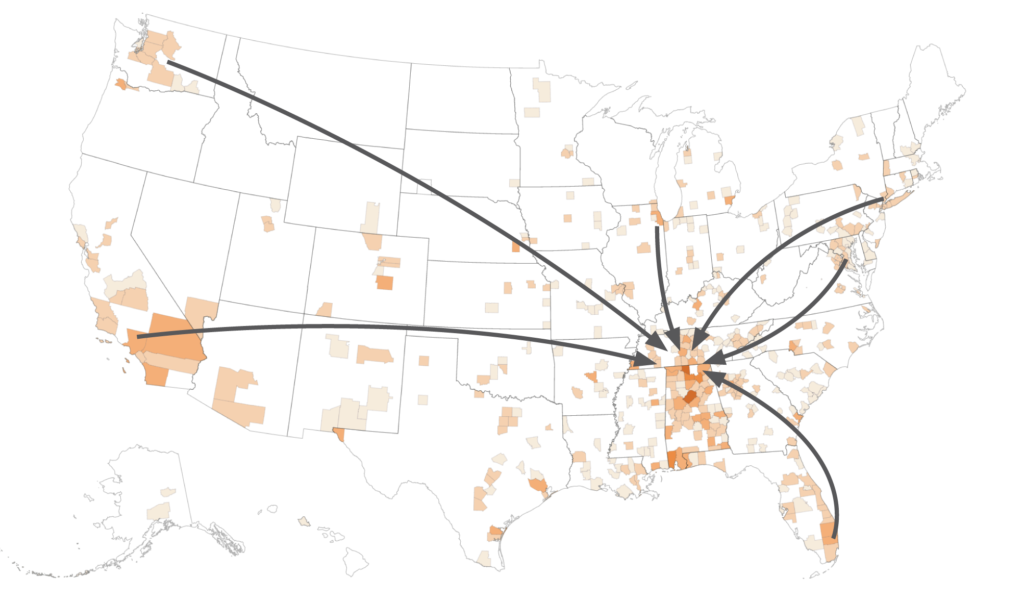Why Huntsville?
Redeemer is a church plant, supported by our partners. These partners recognize that Huntsville needs more healthy churches, and they are committed to seeing this city saturated with the gospel. Here is why.
Every day, nine people move to Huntsville.
Most of the people who have moved to the Huntsville area in the last five years are from some of our nation’s most unchurched and underchurched regions.

Huntsville is under-discipled and becoming unchurched.
“Bible Belt” Christianity has been very well documented, and the peculiar accents of Southern religion have attracted commentary from many corners.
Before COVID-19, four-in-ten Huntsvillians did not attend regular religious services. That number has increased since 2020. It is expected to rise still more as those relocating to Huntsville are coming from traditionally unchurched cities.
Discipleship failure is complicated by the unique character of Southern religion itself: success in ministry is measured in charisma and not faithfulness. That charisma is failing.
The rejection of this brand of religion has led to a new subculture: exvangelical. In many of the pulpits that remain occupied, Jesus might be “famous,” but he’s not the Lord God.
Many churches in Huntsville are in in early-stage decline, and some actively resist efforts to revitalize. Many are dying faster than healthy churches can replace them.
Huntsville needs more healthy churches.

Huntsville is a defense
and technology hub.
In 2021, Huntsville became Alabama’s largest city.
Already known as the “Rocket City,” the city has earned the moniker “Silicon Valley of the South.”
It’s well-earned. Within the next five years, Facebook and Google will locate data centers in the metro area. The FBI is opening a second headquarters in the city to complement Quantico. This will focus on cyber defense and counterintelligence. More, the Department of Defense has announced Huntsville as a possible home of the newly created Space Command.

This makes
Huntsville
hyper-educated.
ImpactAlabama suggested that the hyper-educated are an underreached people in Alabama and a new congregation is needed to reach these skeptics.
The religious landscape of Huntsville will shift dramatically in the next five years as Gen-Z matures and additional families move to the region to capitalize on the tech/intel job markets.
And, Huntsville is sprawling.
By land area, Huntsville is the 29th largest city in America.
In area, it is larger than Philadelphia, Denver, Atlanta, or Las Vegas in area.
Per capita, it is just behind Grand Rapids and Salt Lake City in population.
The city’s new master plan emphasizes a focus on density in the urban core
to sustainably handle the expected population boom, which includes walkable communities, revived transit networks, and more. Better, however, is the city’s efforts to back this plan with concrete steps, such as rewriting zoning requirements.
In the mean time, the sprawl diffuses the “life” of the city in microregional zones, and residents are willing to commute to those zones.
As the city invests in an urban core, churches are needed in that same core to make disciples.

